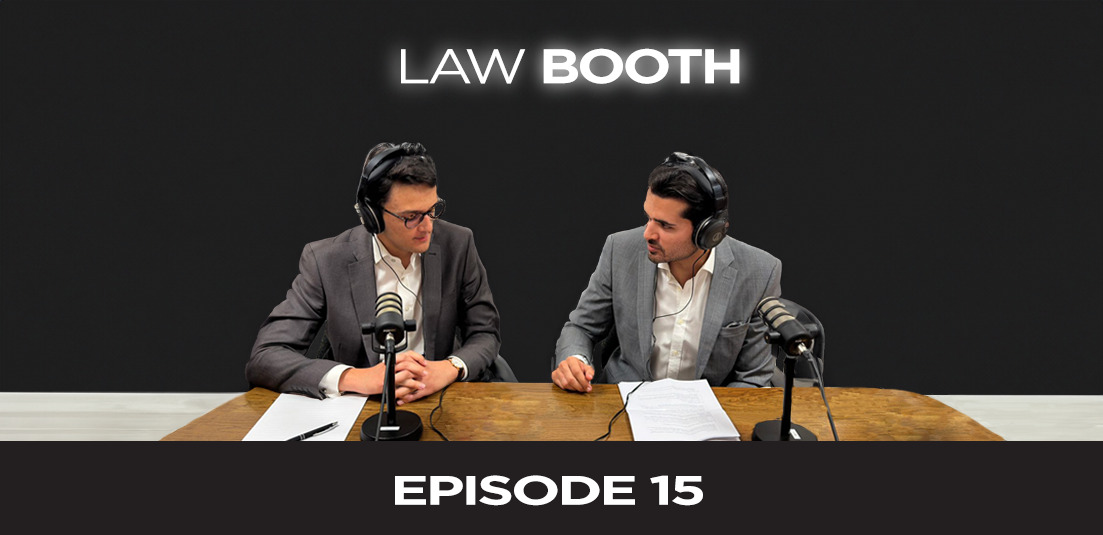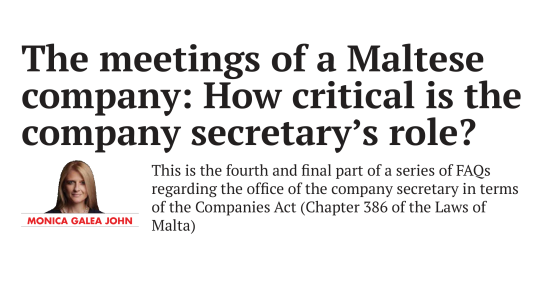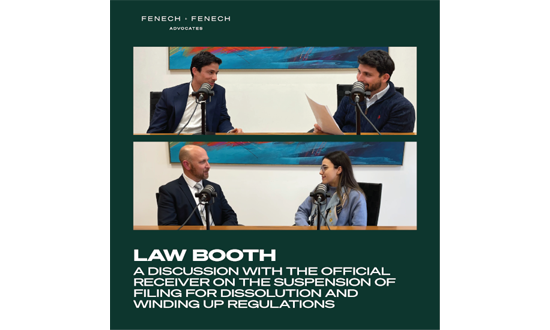
This is the second part of a series of FAQs regarding the Memorandum and Articles of Association of a company incorporated in terms of the Companies Act (Chapter 386 of the Laws of Malta).
This second part will delve into considerations of share capital in connection with the Memorandum of Association and in terms of Maltese law.
1. What is meant by the term “share capital”?
Share capital refers to the amount of funds invested/contributed into a company by the owners of the company, qua shareholders, which is effectively represented by the issuance of company shares in favour of the shareholders.
2. What information is required to be included in the Memorandum of Association with the respect to the share capital clause?
In terms of law, the Memorandum of Association must specifically include:
- the authorised share capital;
- the division of share capital into shares of a fixed amount;
- the issued share capital;
- the amount paid up in respect of each share; and
- where the share capital is divided into different classes of shares, the rights attaching to the shares of each class.
3. What is the difference between the authorised share capital and the issued share capital of a company?
The authorised share capital refers to the maximum nominal value of the shares that a company is authorised to issue in terms of its Memorandum, while the issued share capital is that part of the authorised share capital which has effectively been issued and taken up by shareholder/s. Therefore, the amount of issued share capital in a company can never exceed the amount of its authorised shares capital.
4. What is the minimum amount of authorised share capital that a company can have at inception?
The law, here, distinguishes public and private companies, such that the authorised share capital of a company shall be:
- not less than €1,164.69, subscribed by at least 2 persons in the case of a private company; and
- not less than €46,587.47, subscribed by at least 2 persons in the case of a public company.
Where the authorised share capital is equal to the aforesaid minimum, it shall be fully subscribed in the memorandum, and where it exceeds such minimum, at least that minimum shall be subscribed in the memorandum.
5. Is it necessary that all shares in a company are fully paid up upon signing the Memorandum?
No. The law provides a minimum percentage threshold that must be paid up upon the signing of the Memorandum, and once again distinguishes between public and private companies in this regard.
In the case of a public company, not less than 25%, and in the case of a private company not less than 20%, of the nominal value of each share taken up must be paid upon the signing of the Memorandum, and these same minimum paid-up requirements shall also apply to any further issues of shares in the respective company.
Any part of the issued capital that has not been paid up by the shareholders upon the signing of the Memorandum (also referred to as the “uncalled” capital), may then be called up by the company (i.e. the shareholders will be made to pay) at any time, in accordance with the provisions of the Companies Act and the Articles of Association of the company.
6. What is the most common type of shares that a company may issue?
The law states that every company must have ordinary shares at all times. Moreover, unless stated otherwise, a share is considered to be ordinary. Therefore, the most common type of shares issued by a company are ordinary shares.
Ordinary shares are shares that generally enjoy the minimum same standard rights to dividends, the right to voting at general meetings and the right to the return of capital on a winding up of the company.
7. What is the difference between preference shares and deferred shares?
Preference shares are shares that carry a preferential right of payment over other types of shares (such as ordinary shares), typically in respect of the payment of annual dividends available for distribution and/or the repayment of capital on a winding up.
Deferred shares are shares which entitle the holder thereof to a dividend when a particular minimum rate of dividend has been paid to the ordinary shareholders.
8. Can different types of shares be divided into different classes of shares?
Yes. Where the intention is to attach special rights to a specific type of shares, the latter may be divided into different classes of shares – which classes of shares would naturally have different underlying rights (and restrictions) from one another.
Different classes of shares are typically designated by different names, for e.g. (i) ordinary A shares and ordinary B shares, or (ii) participating preference shares and redeemable preference shares. What is important is that the specific rights (and restrictions) applicable to each of class of shares are clearly set out in the share capital clause within the Memorandum of Association (as well as in the articles of association, to the extent necessary).
9. What is the procedure to change or vary class rights?
Any change to the rights attaching to the different classes of shares will necessarily involve an alteration to the Memorandum and Articles of Association, and therefore it is an extraordinary resolution of the company that is required to be passed in order to change or vary class rights.
10. Does the share capital of a company remain the same and/or fixed throughout its lifetime?
Not necessarily. A company may opt to increase or reduce its authorised and/or issued share capital at any time throughout its lifetime.
Look out for the next set of FAQs which will focus on the objects and powers of a company as regulated by the Memorandum and Articles of Association.
For further assistance in connection with queries concerning the Memorandum & Articles of Association, please contact: Dr. Sarah Grima on sarah.grima@fenechlaw.com
©Fenech & Fenech Advocates
Disclaimer │ The information provided on this Update does not, and is not intended to, constitute legal advice. All information, content, and materials available are for general informational purposes only. This Update may not constitute the most up-to-date legal or other information and you are advised to seek updated advice.















